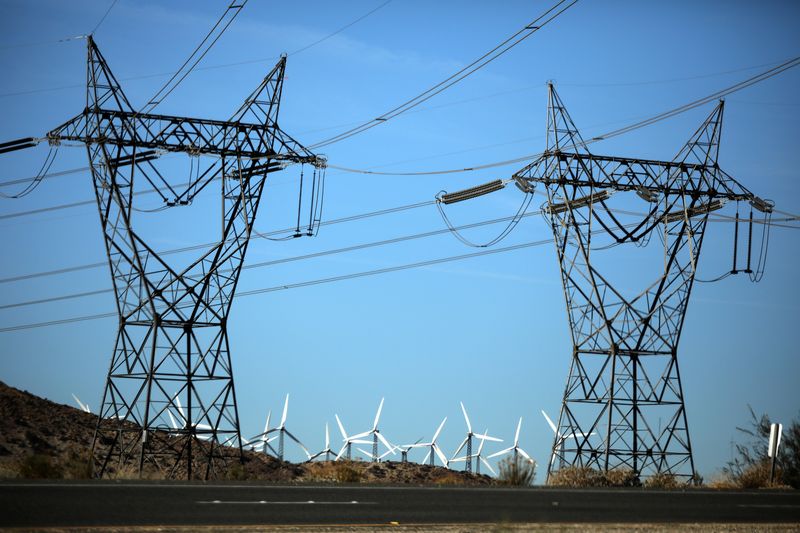(Reuters) - U.S. power consumption will rise to record highs in 2024 and 2025, the U.S. Energy Information Administration (EIA) said in its Short Term Energy Outlook (STEO) on Tuesday.
EIA projected power demand will rise to 4,096 billion kilowatt-hours (kWh) in 2024 and 4,125 billion kWh in 2025.
That compares with 4,000 billion kWh in 2023 and a record 4,067 billion kWh in 2022.
As homes and businesses use more electricity instead of fossil fuels for heat and transportation, EIA forecast 2024 power sales would rise to 1,506 billion kWh for residential consumers, 1,389 billion kWh for commercial customers and 1,047 billion kWh for industrial customers.
That compares with all-time highs of 1,509 billion kWh for residential consumers in 2022, 1,391 billion kWh in 2022 for commercial customers and 1,064 billion kWh in 2000 for industrial customers.
EIA said natural gas' share of power generation would hold at 42% in 2024, the same as 2023, before easing to 41% in 2025. Coal's share will drop from 17% in 2023 to 15% in 2024 and 14% in 2025 as renewable output rises.
The percentage of renewable generation will rise from 21% in2023 to 24% in 2024 and 25% in 2025, while nuclear power's sharewill hold at 19% in 2023, 2024 and 2025.
The use of coal to generate power has been falling versus gas in part because gas produces less carbon dioxide and other emissions and its comparative cost to coal has dropped.
EIA projects gas will be cheaper per million British thermal units (mmBtu) than coal in 2024 for the first time ever, according to federal energy data going back to 2001.
In 2024, spot gas prices at the U.S. Henry Hub benchmark in Louisiana will average just $2.15 per mmBtu versus $2.45 for coal, EIA said. That compares with 2023's averages of $2.54 for gas and $2.52 for coal.
Over the prior five years (2018-2022), gas was much more expensive, averaging $3.62 per mmBtu versus just $2.07 for coal.

EIA projected 2024 gas sales would rise to 12.57 billion cubic feet per day (bcfd) for residential consumers, 9.34 bcfd for commercial customers and 35.88 bcfd for power generation, but slide to 23.22 bcfd for industrial customers.
That compares with all-time highs of 14.32 bcfd in 1996 for residential consumers, 9.63 bcfd in 2018 for commercial customers, 23.80 bcfd in 1973 for industrial customers and 35.43 bcfd in 2023 for power generation.